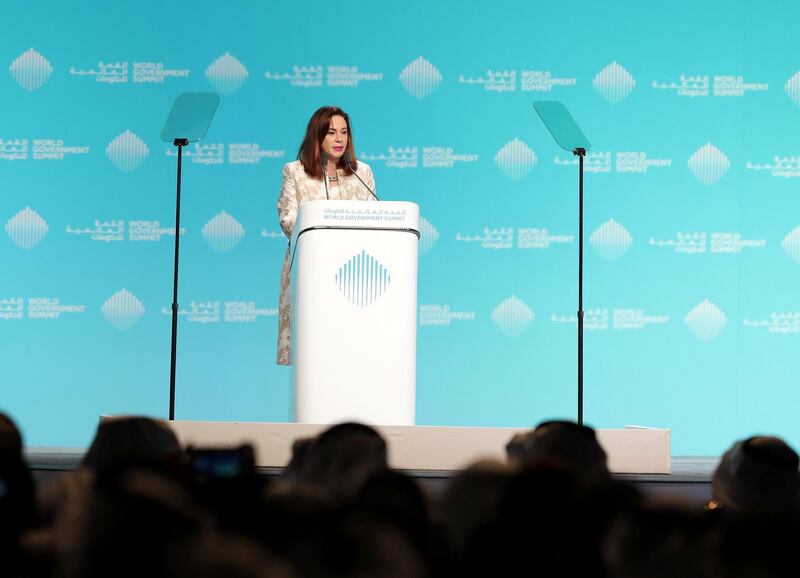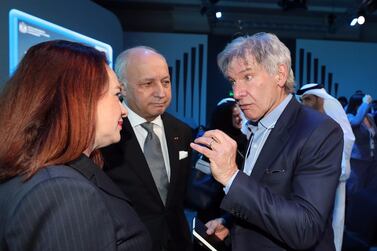The United Nations must reform to remain relevant in a rapidly-changing world and be more assertive in taking on a rising global tide of nationalism, the president of its General Assembly has said.
Maria Fernanda Espinosa used a speech at the World Government Summit in Dubai to make a passionate case for internationalism at a time that she admitted a trend towards isolationism is on the increase.
Donald Trump, the US President, among others, has become a prominent and vocal critic of the UN.
At a speech at the UN last September, he rejected globalism, in line with his America First agenda, and had previously withdrawn the US from its Human Rights Council. International agreements he had ditched include the Paris climate deal and the Iran nuclear pact.
Ms Espinosa insisted that the UN, international co-operation and "a rules-based order" remain “the right and only way to address global challenges and shape our common future”. She cited terrorism, climate change and human trafficking as examples of areas in which working together between nations is essential.
She admitted, though, that the organisation, set up following World War II, has to change to remain relevant.
“Multilateralism and the United Nations are viewed with scepticism by some,” she said. “Recent landmark agreements, such as the Paris agreement and the global compact on migration, have found dissidents.
“We need to recharge and rejuvenate our narrative to make the case and reassert a vision that builds on the achievements of the last 73 years while focusing on future perspectives and emerging challenges.
“We need to be closer to the people, to society, to youth, to the private sector, media, academia, in order to strengthen public support. We must improve the way we communicate – we need to win the communication battle. Effective multilateralism is not an option, it is a necessity.”
The Ecuadorian politician said that while globalisation had brought “monumental” progress, development models had also led to increased inequality, both within and between countries. She suggested that the UN should do a better job of speaking up for the underprivileged.
“A world where nearly 783 million people live below the poverty line is unjust,” she said. “A world where women continue to be paid approximately 20 per cent less than men globally is discriminatory. The 2030 agenda for sustainable development is a survival kit, a blueprint for action. We must honour the pledge we made that no-one will be left behind.”
The make-up of the UN Security Council, which has the US, China, Russia, Britain and France as permanent members - each holding a veto on each others actions - should also be reformed, she said.
“This is a very critical and complex process,” Ms Espinosa added. “There is broad agreement that the current composition of the council, established at the end of World War II, no longer reflects the political realities of the world. Its reform would reinforce multilateralism and contribute to a more democratic and effective global governance system.
“Every analysis based on sound evidence shows we need more, not less, cooperation. But we must also do more to ensure that our multilateral institutions work better."







